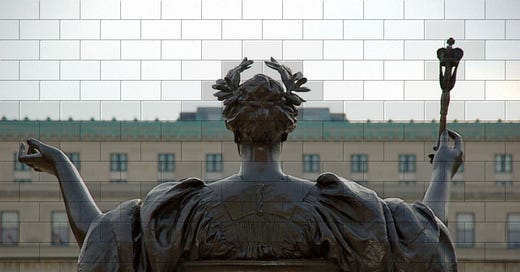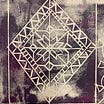
This week, we focus in on the campus protests spreading across North America and discuss issues of free speech, peaceful protest, and how we can protect our students. First, professors of religion, classics, and ancient history talk about what they are seeing on campus and discuss the student-led protests at Columbia University in New York City, as well as protests in Canada. Then, University of Michigan graduate student Kaitlin Karmen reports from the encampment on the Diag, while Palestinian American student Jordyn Imhoff suggests ways to support students. In the news roundup, there are new analyses of ancient Egyptian charcoal, challenges to pseudoarchaeology, a digital project focused on repatriation, a lecture on slavery and Pompeii’s House of the Vettii, new ancient world journals, and much more.
From the Professors: A Report from Barnard and Columbia by Elizabeth Castelli and Joseph Howley
On April 18, 2024, a day after they erected the “Gaza Solidarity Encampment” on the South Lawn of Columbia University, more than 50 Barnard College students were suspended and then evicted from campus, along with 50 or more Columbia University students. The encampment went back up almost immediately and remained up, with students demanding that Columbia divest from companies that sell military equipment to countries that violate international human rights law and end institutional entanglements with the state of Israel that implicate the university in that country’s discriminatory laws and policies.
Two nights ago, after students occupied Columbia’s Hamilton Hall, over 300 more students from Columbia and CUNY were arrested. Protests have now spread to over 120 campuses—and counting. Pasts Imperfect received comments from Elizabeth Castelli, Professor of Religion at Barnard College at Columbia University and Joseph Howley, Associate Professor of Classics at Columbia University. Below are comments by professors and then actionable steps suggested by students involved with the protests.
Over half the students arrested at the Columbia encampment last week were Barnard students—who are therefore disproportionately represented among the arrested and suspended students, given the relatively smaller size of Barnard's student body. Barnard students have been subject to singularly harsh pre-emptive discipline, including eviction from their dormitories late at night after their release from police custody last Thursday [April 18], given only 15 minutes to collect belongings from their rooms before being escorted off-campus.
– Elizabeth Castelli, Professor of Religion, Barnard College at Columbia University
On Tuesday, April 30, 2024, Barnard faculty passed a vote of no confidence in their president, Laura Rosenbury—with 77% voting in favor. This is the first known instance of this happening.
Pasts Imperfect is publishing Joseph Howley’s remarks delivered at the April 18, 2024 student-faculty-staff press conference at Columbia University, outside the President’s House, in the wake of riot police removing peaceful protestors from campus ( Video ).
My name is Joseph Howley and I'm an Associate Professor in the Department of Classics. I'm here as a member of several faculty groups: Faculty and Staff for Justice in Palestine, the AAUP, and a group of more than 20 Jewish faculty members who, two weeks ago, sent a letter to President Minouche Shafik ahead of the Congressional hearing expressing our grave concerns about the weaponization of antisemitism and the right-wing attack on higher education.
I'm here today to stand with our students. I have previously risen on occasions like this to speak as a Jewish faculty member because it seemed important to me that Jewish professors be heard to say certain things. But I’m here today simply as a professor, as a member of this community, as someone who walks their kids to school every day across this campus, as someone who is [tired of] playing the identity politics games, [and] of being divided from the rest of my community by bad actors off campus who don’t share our values.
Yesterday, our university leaders went in front of Congress and, in the face of absurd and hateful interrogation from white nationalist lawmakers, conceded a series of laughable and dangerous propositions about the nature of language and politics and our university. Worse, they endangered the professional reputations and safety of faculty members by discussing discipline and hiring and firing on live television and seeming to bargain away the careers of my colleagues in the face of political pressure.
And today, still clinging, after six months (and an actual chemical attack on protestors on our campus) to the idea that rhetoric and words are a form of threat and unsafety on this campus, in the name of public safety, they have endangered every single member of this campus community and our students in particular by bringing the police onto campus.
I wish the last few months had left me with greater confidence that the university’s response today was about how students were protesting rather than what they were protesting.
Major decisions at this institution are being guided by people who are more concerned with PR and appeasing Republican House members and special interest groups than with the values of a liberal education and a just society. This is what happens when faculty are not in the room. This is what happens when expensive lawyers who don’t know our institution or values are brought in to enforce our rules and discipline our students and advise our leaders. We get cops dragging students off campus, when we have done fine without them for more than fifty years. I need to stress as a member of this faculty what a violation it is of historic norms on this campus to see riot cops breaking up peaceful protests. It will be an historic stain on our reputation and is already a deep wound in our community.
Today, more than a hundred of our brave students risked arrest and violence at the hands of police standing up for something they believe in. I can’t help but contrast their courage and principles with the university leaders across this country who have folded like wet cardboard in the face of political pressure from far right members of Congress and far right special interest groups.
Columbia can either be a world-class place of research and learning, or we can be an institution that resorts to law-and-order responses to protest even when there’s no threat to safety or operations, but we can’t be both.
We can either be a top tier university that supports the safety and wellbeing of all community members or we can be an institution that allows nationalist politics to dictate speech codes and use of force against our students. But we can’t be both.
Tonight, hundreds of faculty are going to bed wondering, what now? what’s next? what can we do? I don’t have any good answers, but I know one thing: we all need to stand with our students. We need to ask, how did this happen? How did our leaders get such bad advice and make such terrible mistakes? In the absence of real leadership we the faculty all need to pull together and create space to ask these questions, to heal and repair our community, and reclaim this proud institution. And that begins with getting nationalist politics out of our policy making, getting faculty back into the room where decisions are made, and getting police off our campus. Thank you.
Twelve days after the arrests that precipitated these remarks, on April 29, Columbia University ceased negotiations with the Gaza Solidarity Encampment, and threatened students there with unprecedented disciplinary measures. By the end of the day, they had begun issuing suspension notices to students in relation to the encampment, including to many students who were not at the encampment but had Palestinian or Arabic last names.
In the early hours of April 30, student protestors occupied Hamilton Hall, home of the Classics Department, renaming it Hind’s Hall in honor of Hind Rajab, a Palestinian child whose killing by the Israeli military has become emblematic of the horror unfolding in Gaza. Late in the evening of April 30, NYPD locked down Columbia’s campus and stormed the building, arresting over 100. Although the police department reported there were “no injuries,” students, staff and faculty working jail support at 1 Police Plaza in lower Manhattan treated students released from custody for lacerations and bruises, including some injuries apparently sustained while in police custody. As of Thursday May 2, faculty and most students remain locked out of Columbia’s campus.
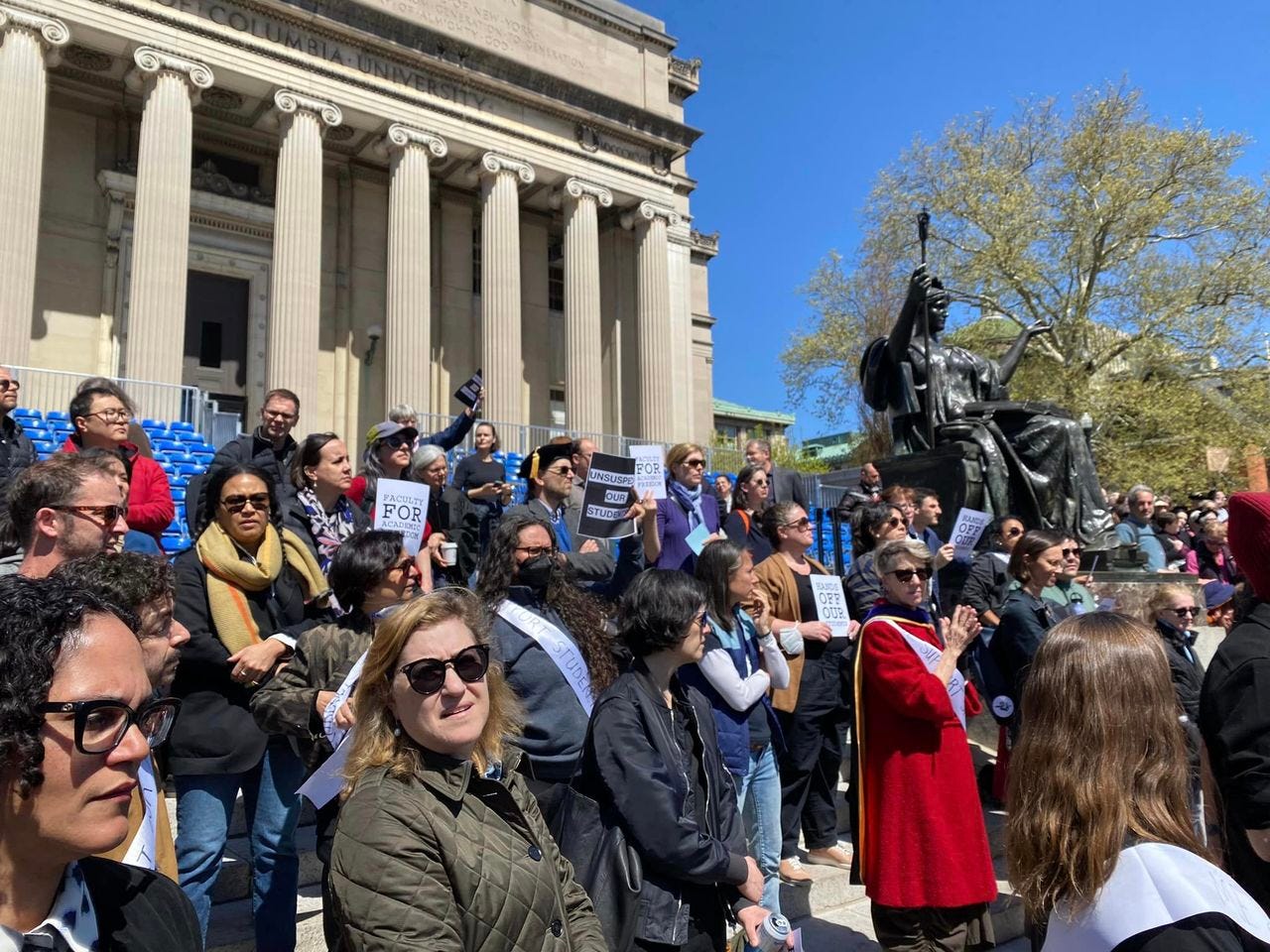

NB: There is also now a statement from individual members of the Pearl Kibre medieval study at the CUNY-GC, written by co-chairs Emily Price and Chris Buonanno, condemning CUNY's repression of students and violation of academic freedom last night, on April 30, 2024. And in the Conversation, Lauren Lassabe Shepherd also warns that in their responses to the protests “College administrators are falling into a tried and true trap laid by the right.”
The View from Canada by Katherine Blouin, Associate Professor of History at the University of Toronto
Over the past few days, a growing number of Canadian university student groups have set up ‘encampments’ and ‘liberation zones’ on their campuses. These include McGill, Concordia, U.Ottawa, TMU, Western, and UBC. Such actions follow months of peaceful activism. For a potent discussion on the state of academic freedom in Canada as it pertains to Palestine, check out the Scholars Strike Canada panel.
On April 29, the traditional council of Kahnawake has confirmed that students at McGill and all over Turtle Island have the right to be on this land "to force their campus administration to divest from Israel's genocide.” Will Canadian university administrators, who have been very keen recently to perform "truth and reconciliation" through land acknowledgements and "Indigenizing" discourses, align their actions with their words, or will their masks shatter to the ground once and for all?

From the Students: In Solidarity with Gaza: The Encampment on UM’s Diag by Kaitlin Karmen
In the early morning of April 22, 2024, students of the TAHRIR Coalition at the University of Michigan established an encampment in solidarity with Gaza on the UM Diag. The UM encampment follows in the wake of strong pro-Palestine activism spearheaded by Students Allied for Freedom and Equality (SAFE), who have been advocating for divestment from Israel and for Palestinian liberation for over two decades. The TAHRIR Coalition has three basic demands: 1) divest from Israel; 2) disclose all financial records; 3) drop the charges against student protesters.
On November 17, 2023, 40 students were arrested at the Ruthven administrative building during a peaceful protest demanding divestment from Israel. Since then, the University of Michigan Police Department has requested additional charges, including felony charges, through the Washtenaw County Prosecutor’s Office. In December 2023, UM administration unilaterally canceled a Central Student Government vote that included a divestment resolution. And on March 27, 2024, the University sought feedback on a proposed new Disruptive Activity Policy, which would have effectively banned any and all protests on campus—or at least those that the University deemed inconvenient to its interests. This new policy was in direct response to student protesters disrupting the annual Honors Convocation Ceremony on March 24. While the University has since backpedaled on the implementation of this proposed policy, the continued refusal to engage with student protesters demonstrates the university’s sinister intransigence.
UM Administration has continually denounced the TAHRIR Coalition’s research into the University’s endowment that revealed UM’s complicity in genocide and apartheid. The 35,000+ Palestinians murdered by Israel—with potentially billions of dollars from UM—have not dissuaded UM from prioritizing financial gain above all else. In their own words, the Regents will “continue to shield the endowment from political pressures.” In categorizing opposition to genocide as mere “political pressure,” the University has also fallen into the trap of amoral pseudo-neutrality. Furthermore, the University has ignored the near-unanimous results of a People’s Referendum, conducted as part of the TAHRIR Coalition’s Divest! Don’t Arrest campaign, demanding that the University divest from Israel, disclose all financial records, and drop the charges against its own students.
Nevertheless, despite near-constant police presence and surveillance and despite the small but persistent group of Zionist counterprotesters, the Gaza Solidarity Encampment on the UM Diag has endured into its second week.
We will not stop until our University divests. We will not rest until Palestine is free.
How to Support Palestinian Students by Jordyn Imhoff, University of Michigan MPH student
Center Palestinian voices and keep sharing their stories. Don't get distracted by these bad-faith speeches about antisemitism on college campuses. Don't turn a blind eye to the genocide continuing to unfold. Follow journalists in Gaza from outlets like Al Jazeera, Mondoweiss, Middle East Eye, Palestinian Youth Movement, etc.
Engage with the culture. Be curious. Learn about our history, eat our foods, and listen to our music. You'll be able to feel what we're fighting to preserve.
Yes, you can wear the keffiyeh (if you feel comfortable enough to do so). You're not appropriating our culture, we promise! Thank you for your public allyship.
Please be mindful of giving us space to process current events.
But also, feel comfortable to ask good-faith questions and hear our perspectives on this issue. It's OK if you say the wrong thing. A lot of people probably didn't even know what Palestine was before October 7. And there are a lot of common misconceptions about Islam and Hamas. Let's talk about it!
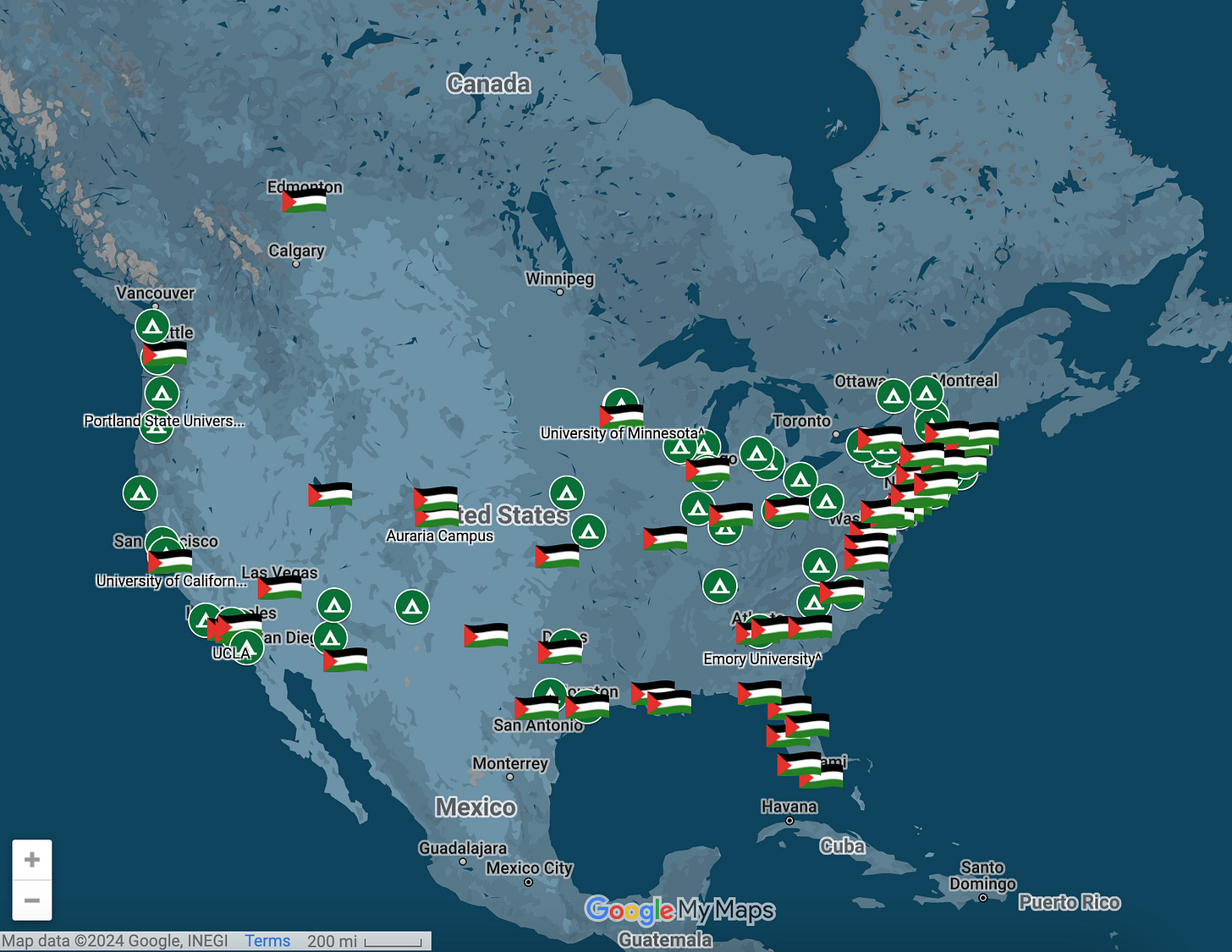
Public Humanities and a Global Antiquity
Over at Boston University, student researcher Ranran (Angela) Zhang, who works in BU’s Environmental Archaeology Lab (EAL), is analyzing 5000-year old Egyptian charcoal samples to understand how Nile communities “used the plants and trees around them.” She noted her goals for the project in an interview with the BU Brink, “What I hope to do is advocate that archaeological data, together with modern ecological data, can be used to inform future environmental practices, like in managing deforestation.”

The Spring issue of TAPA is out and worth a close read. It is on “Race and Racism: Beyond the Spectacular,” put together by guest editors Sasha-Mae Eccleston and Patrice Rankine. From Arum Park’s “Race, Data, and Classics” to Sarah Derbew’s “Doublespeak in Ancient Greek and Modern Ethiopian Satire,” this is a great special issue that explores important issues, receptions, and readings.
The study of Ancient DNA is an important method for reconstructing the past. Bioarchaeologist and journalist Kristina Killgrove has been covering a lot of the new advances. As Killgrove reports, a new genomic study published in Science Advances indicates that “Members of the Blackfoot Confederacy have an ancient lineage that goes back 18,000 years, meaning that Indigenous peoples living in the Great Plains of Montana and southern Alberta today can trace their origins to ice age predecessors, a new DNA study reveals.” In addition, she also has a great piece on new DNA analyses of late antique Avar skeletons from the the Carpathian Basin. Finally, historian of medicine Monica Green pointed us to a new study of “Ancient DNA and paleoproteomic analysis on Roman Imperial-era individuals from Histria, Romania.”
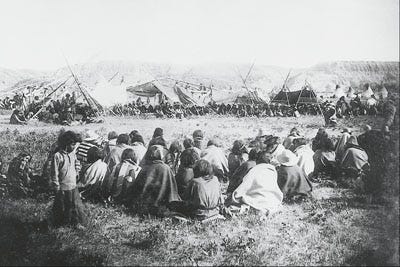
Pseudoarchaeology is big business. And while most scholars of the ancient world would agree that Atlantis is but a metaphor used by Plato in his Timaeus and Critias, the famed sunken city and many other alleged ancient mysteries (e.g., the “pyramid” of Gunung Padang in Indonesia) about the ancient world continue to be capitalized on by media personalities like Graham Hancock. But as archaeologist Flint Dibble explores in the Guardian, “Lost civilisations make good TV, but archaeology’s real stories hold far more wonder.” Dibble also did a great job debating Hancock on the Joe Rogan Experience podcast recently. Although we won’t be linking to that venue here, Dibble has his own YouTube channel for vetting archaeological discoveries and speaking to experts, which you can watch for more.
Scholars of the ancient Mediterranean are getting deserved κῦδος right now. The John Simon Guggenheim Memorial Foundation has named University of Texas at Austin classicist Andrew M. Riggsby a 2024 fellow. His book project will explore “the value of modern cognitive science to humanistic (especially historical) research by means of a series of case studies of ancient Roman material. What value can cognitive science bring to study of the past? What are the possible contributions in the other direction, and how can they be achieved? When does responsible historical scholarship actually require attention to cognitive science?” All fascinating and important questions to ask. The American Academy in Rome has also announced their Rome Prize recipients.
The April issue of Reviews in Digital Humanities, "African Digital Humanities," edited by Leah Junck and James Yékú is out now. In it, a number of DH sites connected to the continent are reviewed, including Dominique Somda’s review of “Open Restitution Africa.” As Somda notes, the project was founded by Molemo Moiloa and Chao Tayiana Maina, and focuses on open data regarding repatriation:
Over 1,000,000 known African artifacts are held outside the continent. Less than 1,000 artifacts have been returned. There is scant data available on the current international status of restitution — returns, returns-in-process, debates, policy, and practice. It is, therefore, difficult to identify changes and impacts in policy and practice. ORA is developing an open data platform to centralize African restitution data and enable data driven approaches to restitution, particularly for African stakeholders.

New Antiquity Journal Issues (by @YaleClassicsLib / yaleclassicslib.bsky.social)
DABIR Vol. 10, No. 2 (2023)
Phronesis Vol. 69, No. 2 (2024) NB Benedetto Neola, “Pure Souls as Functional Angels: Chaldean Oracles fr. 138 Reconsidered”
Classical Philology Vol. 119, No. 2 (2024) Philology Transfigured
TAPA Vol.154, No.1 (2024) Race and Racism: Beyond the Spectacular
Philosophy East and West Vol. 74, No. 2 (2024)
Journal of the History of Philosophy Vol. 62, No. 2 (2024)
Cuadernos de Filología Clásica. Estudios griegos e indoeuropeos Vol. 34 (2024) #openaccess
Arethusa Vol. 57, No. 1 (2024) Musical Structure in Greek Tragedy
Vetus Testamentum Vol. 74, No. 2 (2024)
Religious Studies Vol. 60, no. S1 (2024) #openaccess Death & Immortality
Mediterranea. International Journal on the Transfer of Knowledge Vol. 9 (2024) #openaccess
eisodos 2024, No. 1 #openaccess
Journal of Urban Archaeology Vol. 9 (2024) Placing Space, Shaping Cities, and Making History in the Ancient Classical World
Römische Mitteilungen Vol. 129 (2023) #openaccess NB Michael Koortbojian, Noel Lenski “The Constantinian Frieze on Constantine's Arch: The Weight of the Evidence”
Cambridge Archaeological Journal Vol. 34 , No. 2 (2024)
Antiquité Tardive Vol. 31 (2024) La Méditerranée occidentale au Ve siècle
Early Christianity (EC) Vol. 15, No 1 (2024) Luke-Acts: New Directions in the Study of the Lukan Writings
Journal of Near Eastern Studies Vol. 83, No. 1 (2024)
Liber Annuus Vol. 73 (2023)
Oxford Journal of Archaeology Vol. 43, No. 2 (2024)
Public Lectures, Exhibitions, and Workshops
Next Tuesday May 7, 2024 at 6pm BST (GMT+1), online, The Manchester Classical Association welcomes Sarah Levin Richardson to discuss “Enslaved Children in the House of the Vettii, Pompeii: A Conversation.” Sign up on Eventbrite and the Teams link will be emailed to you.

The Ancient Medicine Seminar at Oxford University is hosting Gavriella Makri on May 8 to discuss “Byzantine Cyprus: Hermits and Healing,” followed by Robert Arnott on May 22 to discuss “Trees, Deities and Magic in Bronze Age South Asian Medicine.” The Zoom link is here (no registration required).
The Oxford-based Janus Project explores the corpus of texts that developed from the confluence of the Greco-Roman and Chinese Classical traditions. It’s Hilary Term Seminar ( Fridays 2pm-3:30pm GMT) began last week. If you are interested in participating remotely contact cynthia.liu@classics.ox.ac.uk.

